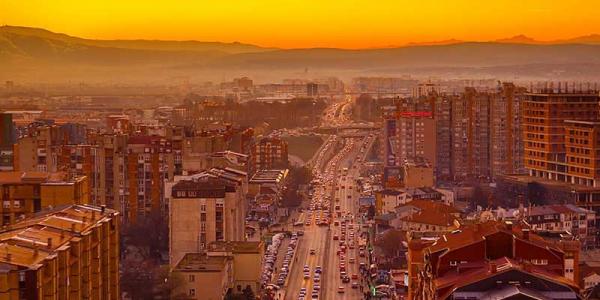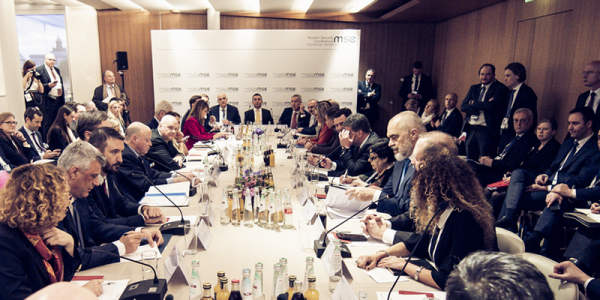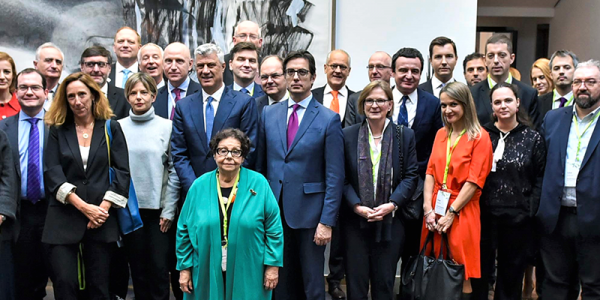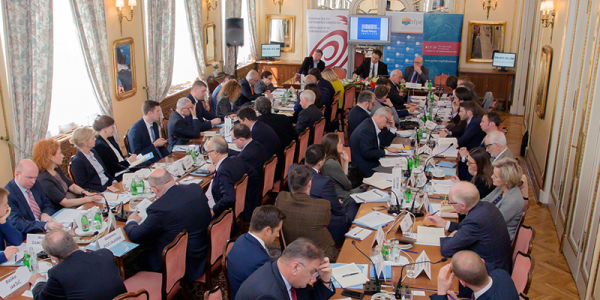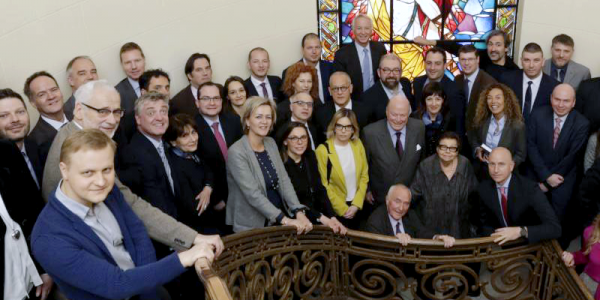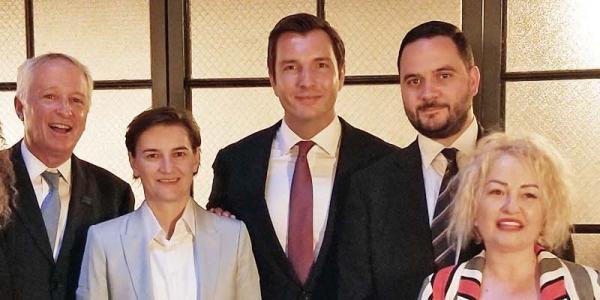Our Mission
EastWest Institute has launched the Balkans program in response to an urgent need for inclusive and open, high-level dialogue concerning pressing security challenges threatening the Western Balkans and Europe. In partnership with the Munich Security Conference and the Belgrade Fund for Political Excellence, the initiative aims to increase and deepen understanding of key issues while building trust between representatives of the various geopolitical interests present in the region today.
What We Do
BALKAN DIALOGUES INITATIVE
The program’s work centers on the Balkan Dialogues initiative—a series of dialogues in different capitals in Europe and the U.S. that provide a platform for policymakers and experts to discuss and debate key areas where competing interests collide and produce recommendations for defusing existing tensions.
Dialogues and Impacts
The first of the Balkans Dialogues took place in March 2019 in Belgrade. Decision-makers and experts from the six countries of the Western Balkans (WB6), including Albania, Bosnia and Herzegovina, Kosovo, Macedonia, Montenegro and Serbia, along with the European Union, United States, Russia and China met to reassess strategic goals in the region, resulting in several policy recommendations. Participants included Amb. Cameron Munter; Amb. Wolfgang Ischinger; Amb. Frank Wisner; Erhard Busek; Pierre Mirel; Amb. Kai Eide, Ivan Krastev and Aleksandar Vucic, President of Serbia, along with many other stakeholders and experts. A report stemming from the meeting can be found here.
The second Balkan Dialogues event convened in Berlin in December 2019, gathering 57 participants (heads of state, dignitaries and experts) along with 30 observers from 19 countries for a two-day working session focused on the future of EU expansion and the unresolved Kosovo-Serbia crisis. Participants put forward ideas to prevent future conflict, unblock the negotiations between Serbia and Kosovo and make the EU enlargement process more efficient and attractive for both the EU and the Balkans.
Participants included Stevo Pendarovski, president of North Macedonia; Hashim Thaci, president of Kosovo; Albin Kurti, prime minister of Kosovo; Marko Djuric, director of the Serbian Office for Kosovo; Matthew Palmer, deputy assistant secretary and special envoy for the Balkans at the U.S. State Department; Antje Leendertse, secretary of state of the German Federal Foreign Office; Baroness Catherine Ashton, former E.U. High Representative for Foreign Affairs and Security Policy; Dr. William Parker, president and CEO of the EastWest Institute; Amb. Wolfgang Ischinger; Amb. Frank Wisner; Amb. Cameron Munter; Nikola Dimitrov and many other diplomats, researchers and experts interested in maintaining peace in the Balkans. EVENT REPORT
The program’s most recent Balkan Dialogues meeting occurred during the Munich Security Conference in March 2020. The event attracted an impressive number of high-level participants and fostered a lively and impassioned discussion among its active participants, including five prime ministers, five presidents, the EU High Representative for Foreign Policy, German State Secretary, U.S. Assistant Secretary of State, Secretary General of OSCE, seven Ministers of Foreign Affairs and Defense and several current and former ambassadors.
Future dialogues will be held in the United States and Europe. For additional information, please contact Maja Piscevic.

